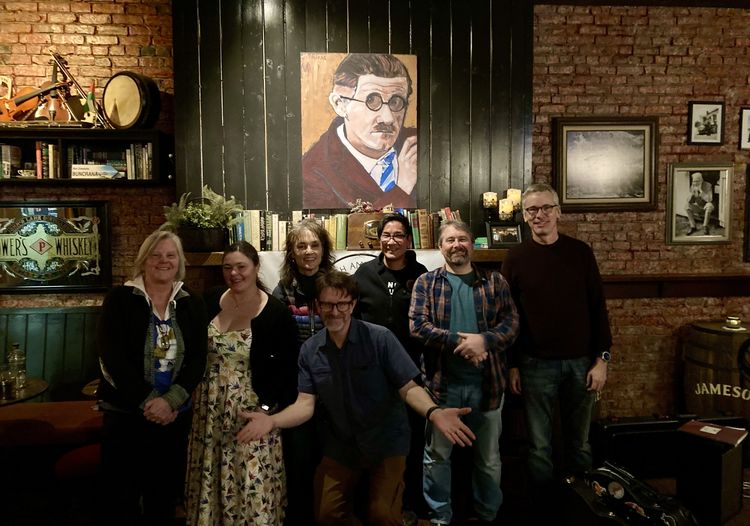There's more than bricks, mortar and artifacts involved in the debate and discussions surrounding the Great Hunger Museum at Quinnipiac University in Connecticut.
There's also the essence of the place, its spirit, the thinking that it provokes, the extraordinary pain that it reminds us all of.
That's the museum in its total sense.
But what if the building and its collection were to be separated?
Talks to save the Great Hunger Museum at Quinnipiac University in Connecticut are underway between the university and "several" groups.
This according to Quinnipiac.
The museum is currently closed and there is continued uncertainty over its future and that of its priceless art and artifact collection.
A spokesman for Quinnipiac told the Echo that the university "has been engaged in productive conversations with several different potential partners and is making progress with respect to the IGHM collection and ensuring it remains accessible to the broad public and continues to promote the vital story and learnings of the Great Hunger."
One of those "potential partners" is the Committee to Save Ireland’s Great Hunger Museum, Inc.
Four members of the group's board, executive director Turlough McConnell, professor emerita Catherine B. Shannon, attorney Michael McCabe, and treasurer Sean O’Dowd, held a Zoom meeting for nearly one hour with Quinnipiac University Provost Debra Liebowitz and Vice President Daryl Richard to discuss the board’s proposal to take over the day to day running of the museum, this in conjunction with the university, stated a recent report on Irish Central.
It was this group that held a "salute" to the museum outside its front door on a rainy day last fall. The gathering was addressed by Connecticut U.S. Senator Richard Blumenthal.
In an ad in the February 2-8 issue of the Echo - and donated by the Echo - the group started: "Amid America's struggles to properly understand and teach its history, Ireland's Great Hunger Museum in Hamden, Connecticut, offers a crucial chapter of the narrative. The museum's art collection highlights the disruptions of refugees from Ireland in the mid-19th century and their contributions and those of their descendants as central to the transformation of America ever since.
"Ireland's great Hunger Museum is more than a collection of art and artifacts paying tribute to the victims and their suffering. The unique exhibition holds a mirror to today's society and forces us to ask uncomfortable questions - such as, why is this still happening? The death and migration of millions is considered the greatest disaster in 19th century Europe and has recurred in countless nations since."
Yes. Here is the essence, the meaning, and the contemporary relevance of the museum collection.
So what if it is moved elsewhere? The Echo understands that among the "several" groups there is one that hopes to take possession of the museum collection in its entirety, though not the building that currently houses it.
There is much to be discussed. There is much to be concerned about. There is everything to be decided.









